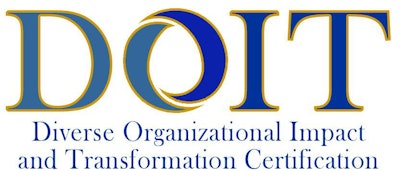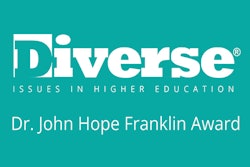FOR IMMEDIATE RELEASE
Contact: Ralph Newell
Phone: 703.385.2419
Email: [email protected]
Fairfax, Va.— After reviewing the second survey results on Institutional Leadership and Commitment (Pillar I) and Curricular & Co-Curricular Transformation (Pillar II), CoopLew and Diverse: Issues In Higher Education are pleased to announce 6 qualifying institutions for the DOIT certification program.
DOIT (Diverse Organizational Impact and Transformation) is a research mechanism that certifies an institution’s progress on diversity and inclusion.
The certification process utilizes four Institutional Pillars for Transformation (IPTs) and a Pillar Indicator Map (PIM). The IPT and PIM identify institutional components that provide insight into the intentionality and frequency institutional behaviors and policies are performed. They further reveal expectations for transformation within recruitment, retention, reward, promotion, and pipeline substructures.
The IPTs are:
- ILC – Institutional Leadership & Commitment
- Curricular & Co-Curricular Transformation
- Campus Climate
- Representational Diversity
Based on their respective IPT scores of “B” in the Pillars I & II survey, the following institutions (in alphabetical order) will be recognized in the April 15, 2021 edition of Diverse.
- Frontier Nursing University
- Grand Valley State University
- Old Dominion University *
- Texas Woman’s University *
- The University of Houston-Victoria *
- University of Oklahoma
* These institutions scored a “B” in Institutional Leadership and Commitment (Pillar I) and Curricular & Co-Curricular Transformation (Pillar II).
To find out more about CoopLew and Diverse: Issues In Higher Education, contact CoopLew at [email protected] or (844) LEAD-CDO or Diverse at 703-385-2419.














